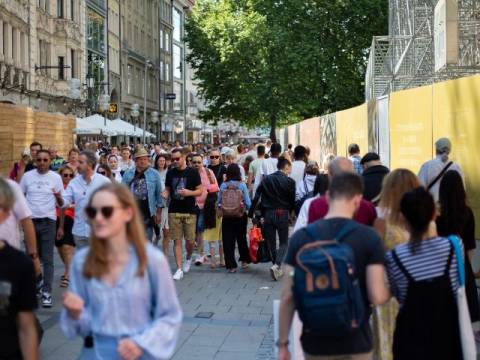Europe's biggest economy is suffering — and could spell trouble for the whole continent.

German retail sales slumped 8.8% in June compared with the same month a year ago, according to preliminary data from the country's Federal Statistics Office released Monday.
That's the biggest drop since officials started keeping records in 1994.
Germany's economy is in a gloomy spot. Soaring inflation has checked people's spending power, while a looming energy crisis threatens to tip the country into a recession.
Last week, official data showed the country stagnated in the second quarter.
While the European Union's economy grew by an unexpected 4% in the second quarter compared with last year, a slowdown in Germany — its manufacturing heart — could help drag it into reverse. The country accounts for about a quarter of the EU's gross domestic product.
And the ongoing energy standoff between Europe and Russia means that a recession is still very much on the cards.
Germany is particularly vulnerable. It has long relied on Moscow's natural gas exports to power its homes and heavy industry.
While Germany has managed to slash Russia's share of its gas imports to 35% from 55% before the start of the war in Ukraine, a sudden break could wipe €220 billion ($226 billion) off its economy over the next two years, according to five of the country's top economic institutes.
That's a very real possibility. Russia has already turned off the taps to several European countries and energy companies in recent months. Over the weekend, Moscow cut Latvia off from its supplies for violating conditions for gas withdrawal, without providing further details.
Anticipating the worst, Germany has already activated the second phase of its three-stage emergency gas plan, bringing it one step closer to rationing supplies to industry — a move that would deal a big blow to its economy and, by extension, the whole of Europe's.
— Nadine Schmidt and Mark Thompson contributed reporting.
